How to escape the household energy price trap?

Household electricity prices in recent months bore little relation to real production costs, were kept artificially low and treated as an interface with voters. State intervention in this area was necessary in 2022 due to unprecedented price increases on the markets. If the price-freezing mechanisms expire as planned at the end of 2023, electricity prices for households could rise by up to 68% in January. The impact of price spikes should be mitigated. We are proposing a package of solutions: an energy voucher, support for distribution tariffs, additional money for improving the energy efficiency of buildings and a special tariff for heating buildings with electricity.
Read More
How to escape the household energy price trap?
Household electricity prices in recent months bore little relation to real production costs, were kept artificially low and treated as an interface with voters. State intervention in this area was necessary in 2022 due to unprecedented price increases on the markets. If the price-freezing mechanisms expire as planned at the end of 2023, electricity prices for households could rise by up to 68% in January. The impact of price spikes should be mitigated. We are proposing a package of solutions: an energy voucher, support for distribution tariffs, additional money for improving the energy efficiency of buildings and a special tariff for heating buildings with electricity.

Past time for gas?

Over the past two years, natural gas has become a high-risk fuel: it is subject to huge price fluctuations and, following the disruption of supplies from Russia, competition for imports of this resource from other sources is increasing. Not long ago, there were plans in Poland to significantly increase the consumption of natural gas throughout the economy - by 75% by 2035. It was supposed to be a transition fuel.
Read More
Past time for gas?
Over the past two years, natural gas has become a high-risk fuel: it is subject to huge price fluctuations and, following the disruption of supplies from Russia, competition for imports of this resource from other sources is increasing. Not long ago, there were plans in Poland to significantly increase the consumption of natural gas throughout the economy - by 75% by 2035. It was supposed to be a transition fuel.

Cutting energy bills before winter (toolbox)
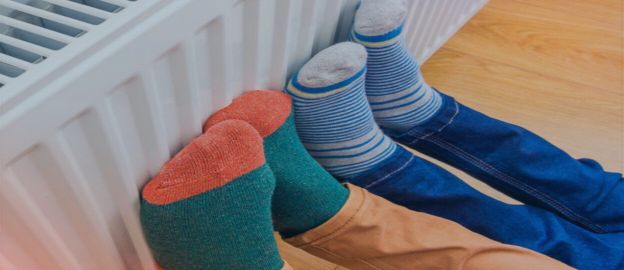
The upcoming winter will be difficult for many Polish households due to high costs of heat and electricity. In the latest report by Forum Energii, more than 30 concrete measures are listed. They can be implemented easily and at a low (or even none) cost before the heating season. This will reduce bills and improve the country's energy security.
Read More
Cutting energy bills before winter (toolbox)
The upcoming winter will be difficult for many Polish households due to high costs of heat and electricity. In the latest report by Forum Energii, more than 30 concrete measures are listed. They can be implemented easily and at a low (or even none) cost before the heating season. This will reduce bills and improve the country's energy security.
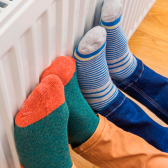
RRP: The bare minimum for over €9bn

With one year delay the national Recovery and Resilience Plan (RRP) is entering Poland. So far, the discussion around the RRP has focused primarily on money. Meanwhile – and this is particularly evident in the area of energy transition – the RRP is an instrument that has mobilised the Polish government to work out the necessary reforms, involving an in-depth analysis of challenges ahead, assessment of specific solutions, and necessary legal changes, all within specific timeframe. Investment support – although crucial – plays a secondary role in accelerating the implementation of reforms.
Read More
RRP: The bare minimum for over €9bn
With one year delay the national Recovery and Resilience Plan (RRP) is entering Poland. So far, the discussion around the RRP has focused primarily on money. Meanwhile – and this is particularly evident in the area of energy transition – the RRP is an instrument that has mobilised the Polish government to work out the necessary reforms, involving an in-depth analysis of challenges ahead, assessment of specific solutions, and necessary legal changes, all within specific timeframe. Investment support – although crucial – plays a secondary role in accelerating the implementation of reforms.

Clean heat as an engine for the Polish economy
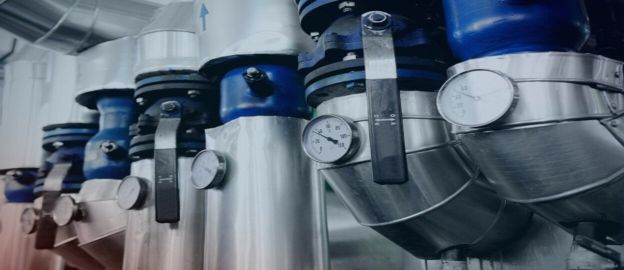
A new approach to heating is needed in Poland. It is currently a neglected area where the necessary changes and modernisation have been postponed for years. As a result, every winter we have the most polluted air in the European Union and the Polish district heating system is on the verge of collapse. The costs and scale of the investments needed are enormous, but further delays will lead to an even higher prices.
Read More
Clean heat as an engine for the Polish economy
A new approach to heating is needed in Poland. It is currently a neglected area where the necessary changes and modernisation have been postponed for years. As a result, every winter we have the most polluted air in the European Union and the Polish district heating system is on the verge of collapse. The costs and scale of the investments needed are enormous, but further delays will lead to an even higher prices.
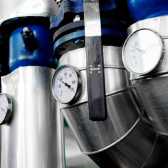
The district heating company of the future
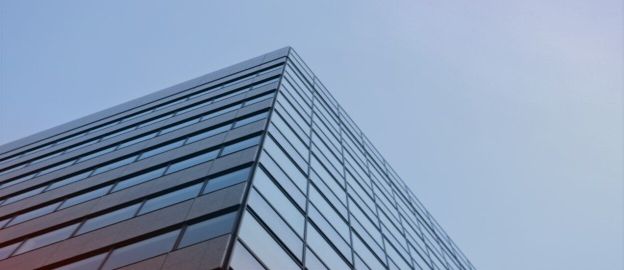
Heat in Poland becomes more expensive. This is a result of an outdated business model in district heating, which rewards the company for as much heat production as possible and does not encourage to modernize the infrastructure. Meanwhile, consumers want to pay as little as possible for energy and heat. One of the key elements of the game for lower bills and lower CO2 emissions is becoming energy efficiency of heating systems and buildings. This completely changes the market conditions in which heating companies have to find themselves. If we do not want them to collapse - it is necessary to implement a new business model in district heating. Forum Energii writes about how it could look like in its latest report.
Read More
The district heating company of the future
Heat in Poland becomes more expensive. This is a result of an outdated business model in district heating, which rewards the company for as much heat production as possible and does not encourage to modernize the infrastructure. Meanwhile, consumers want to pay as little as possible for energy and heat. One of the key elements of the game for lower bills and lower CO2 emissions is becoming energy efficiency of heating systems and buildings. This completely changes the market conditions in which heating companies have to find themselves. If we do not want them to collapse - it is necessary to implement a new business model in district heating. Forum Energii writes about how it could look like in its latest report.

Heat electrification in Poland | The path to clean heat

Despite the government's declarations, progress in improving air quality in Poland has been poor. The rate of modernisation of buildings is slow, and public funds continue to support the replacement of old coal boilers with other coal-fired options, which other European countries have phased out. Meanwhile, a huge stream of European money will be flowing towards 'clean heat' in the coming years. In the newest analysis from the Forum Energii, we explain why it is worth betting on electrification of heating, identify which technologies have a future, and explore how this will affect the energy system.
Read More
Heat electrification in Poland | The path to clean heat
Despite the government's declarations, progress in improving air quality in Poland has been poor. The rate of modernisation of buildings is slow, and public funds continue to support the replacement of old coal boilers with other coal-fired options, which other European countries have phased out. Meanwhile, a huge stream of European money will be flowing towards 'clean heat' in the coming years. In the newest analysis from the Forum Energii, we explain why it is worth betting on electrification of heating, identify which technologies have a future, and explore how this will affect the energy system.

Energy sector integration | Key to becoming climate-neutral by 2050

The future energy mix will be dominated by renewable energy sources (RES) with zero production costs, such as wind farms and photovoltaics. The abundance of cheap electricity will allow for the replacement of fossil fuels, both in heating and transport sectors. Effective integration of these sectors, within one energy system, will also help to solve the problem of weather-dependent RES production.
Energy sector integration | Key to becoming climate-neutral by 2050
The future energy mix will be dominated by renewable energy sources (RES) with zero production costs, such as wind farms and photovoltaics. The abundance of cheap electricity will allow for the replacement of fossil fuels, both in heating and transport sectors. Effective integration of these sectors, within one energy system, will also help to solve the problem of weather-dependent RES production.

The EU is ready to co-finance our energy transformation ― what does the Polish government have to say?
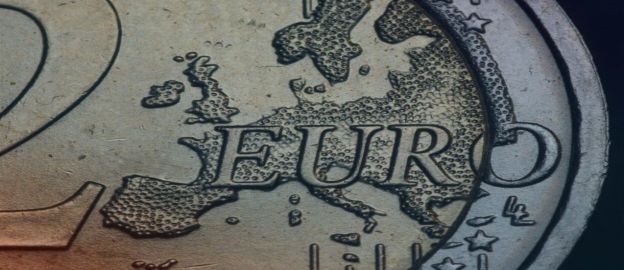
On 17 July the European Council will launch the final negotiations on the EU budget, unprecedented in scale and intended to pull the EU out of recession and give it a new boost.
Since December 2019 Poland has been part of the EU discussions, trying to distance itself from climate neutrality in 2050. Although all other Member States agreed to it.
Read More
The EU is ready to co-finance our energy transformation ― what does the Polish government have to say?
On 17 July the European Council will launch the final negotiations on the EU budget, unprecedented in scale and intended to pull the EU out of recession and give it a new boost.
Since December 2019 Poland has been part of the EU discussions, trying to distance itself from climate neutrality in 2050. Although all other Member States agreed to it.

Renewables (RES) in heating

Heating and all of us in Poland have a problem. In domestic heating we rely on technologies from the 50s and 60s of the last century. In winter we have the worst quality air in the European Union. The society bears the enormous health costs related to air pollution - 120 billion PLN annually. We use primarily coal, which we are running out of, and we need to cover the costs of CO2 emission allowances. What next? Does coronavirus mean the end of dreams about clean air and the end of investments in modern technologies? Quite the opposite. Right now we should be looking at renewables.
Read More
Renewables (RES) in heating
Heating and all of us in Poland have a problem. In domestic heating we rely on technologies from the 50s and 60s of the last century. In winter we have the worst quality air in the European Union. The society bears the enormous health costs related to air pollution - 120 billion PLN annually. We use primarily coal, which we are running out of, and we need to cover the costs of CO2 emission allowances. What next? Does coronavirus mean the end of dreams about clean air and the end of investments in modern technologies? Quite the opposite. Right now we should be looking at renewables.

Anti-smog roadmap for Żywiec | Clean heat by 2030
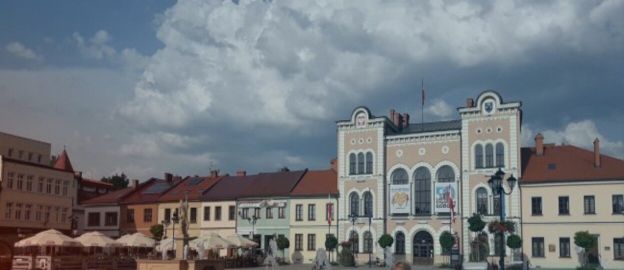
The challenge of fighting the coronavirus and the upcoming spring are distracting public attention from the problem of smog. But it will not disappear and as the boomerang will return in a few months with the start of the heating season. Especially to the towns and cities - where, like in Żywiec, more than 80% of heating energy comes from coal. In the latest report of the Forum Energii Anti-Smog Roadmap for Żywiec. Clean heat by 2030." we indicate what steps should be taken to get rid of smog by 2030. Now the report is available only in Polish, but English version will be published soon.
Read More
Anti-smog roadmap for Żywiec | Clean heat by 2030
The challenge of fighting the coronavirus and the upcoming spring are distracting public attention from the problem of smog. But it will not disappear and as the boomerang will return in a few months with the start of the heating season. Especially to the towns and cities - where, like in Żywiec, more than 80% of heating energy comes from coal. In the latest report of the Forum Energii Anti-Smog Roadmap for Żywiec. Clean heat by 2030." we indicate what steps should be taken to get rid of smog by 2030. Now the report is available only in Polish, but English version will be published soon.
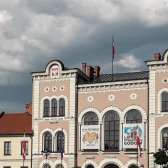
Fighting on the wrong front. Polish gvernment intends to subsidise energy consumption instead of fighting energy poverty

The Ministry of State Assets announces subsidies to energy bills for people earning less than 5 000 net per month. The reaction to the increase in electricity prices in Poland has shown that politicians are so afraid of this subject. However, they have no good idea how to solve it.
Read More
Fighting on the wrong front. Polish gvernment intends to subsidise energy consumption instead of fighting energy poverty
The Ministry of State Assets announces subsidies to energy bills for people earning less than 5 000 net per month. The reaction to the increase in electricity prices in Poland has shown that politicians are so afraid of this subject. However, they have no good idea how to solve it.
